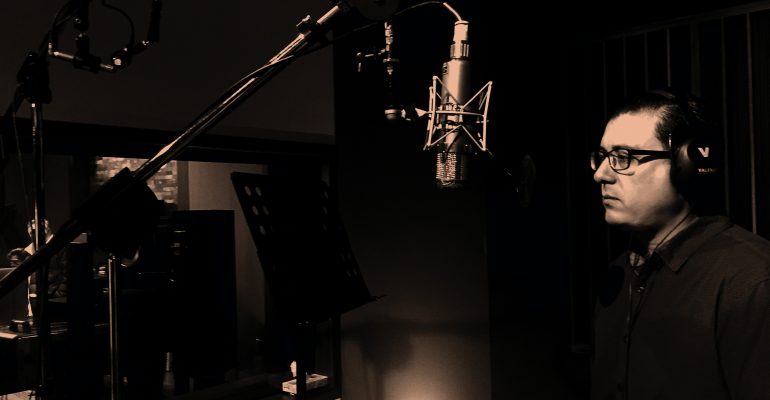Hiring the right professional voice actor will make all the difference to your video or audio project.
Whether it’s an audiobook, animation, video game, or advertisement, the voice over you select will greatly affect how those tuning in perceive your product and, ultimately, your brand.
The fact is that every voiceover artist has their own unique style. That means two different actors could create totally different impressions for listeners.
This makes it critical to find voice talent whose tone and style fits the idea you have in mind for a particular project.
But how can you find the perfect voice actor—especially when there are so many people out there claiming to be experts?
What qualities should you prioritize when deciding between different voice-over artists?
How much should you budget for voice over services?
Let’s take a look at the five most important questions to ask professional voice actors before recording.
1. As a Professional Voice Actor, What Experience Do You Have?
Voice acting is more than just reading a script into a microphone.
A great professional voice actor will get the listener’s attention by delivering the message in a distinctive way.
If you’re curious about a particular actor, listen to their demo reel to get an idea of their skills and range.
Some people excel in more formal contexts, such as corporate videos or e-learning content.
Others are a better fit in dramatic settings like movies and TV shows.
Unsure whether someone could be a good fit?
Ask them about similar projects they’ve worked on in the past.
Even if it isn’t in their demo reel, they may have relevant experience or samples to share with you.
2. What’s Your Availability?
The last thing you need is to find a great voice actor and then discover that they can’t meet your deadlines.
Make sure to let them know the timeline, processes, and workload so that they can determine whether it’s a good fit.
You’ll need to confirm that they will be available for the duration of the project before you begin working.
This is also a good opportunity to gauge their communication skills.
You don’t want to work with someone who takes too long to respond or doesn’t appear to be prioritizing your project.
Remember that you’ll need to leave time after recording to turn the raw audio file into a final product.
3. Do You Have a Recording Studio?
If it’s your first time hiring a professional voice actor, it’s easy to underestimate the importance of recording quality.
Audio editing can make a recording sound better, but it’s not magic.
Background noise, muffled vocals, and other imperfections will hurt the final product and give you a lot of extra legwork.
Feel free to ask about their recording equipment—plus the acoustics in their studio, which are often even more important.
A recording is ultimately only as good as the weakest link.
Imagine an A-list voice actor recording with state-of-the-art equipment.
Sounds perfect, right?
Not quite.
All the money spent on equipment and talent will go to waste if they’re recording in a room with no soundproofing or acoustic treatment.
Of course, the best way to gauge recording quality is to ask them for a recording, which we’ll cover in the next step.
4. Can You Record a Sample from the Script?
Demo tapes offer an overview of a VO artist’s skill set, but they don’t always show how well they’ll fit into your specific content.
Before making a final choice, ask your shortlist of voice actors to record audition tapes using an excerpt from your script.
If you don’t yet have a script, you can use Voice Crafters’ FREE AI copywriter tool to quickly create a sleek, professional script that you can then give to your potential voice-over artists.
With that, you can give them a rough idea of what you’re looking for. But it’s also important to allow them room to experiment and bring their own interpretation to the script.

American Voice Actor Darrell B.
Highly sought-after professional voice actor Darrell B. notes that the best voice talent won’t just read the words on the page—they’ll consider context, cadence, and the client’s needs to deliver a truly engaging performance.
You first have to read through the copy to get your mind around the context and points of emphasis. Then you read out loud. If it is jam-packed with copy, you read through it slowly, then speed up as you find the rhythm of the words.
Once you’ve been doing this for a while, you develop an internal clock that can usually get you pretty close to nailing the timing.
The best voice actors practice but don’t memorize the cadence; it’s important to remain flexible for however the client wants to direct you in the session.
Just listen to how Darrell controls the pace and balance of the video below, bringing a quiet passion and power to his words without ever raising his voice or racing through the script.
Of course, every VO artist will have a unique approach that depends on their experience, imagination, and creativity as their on their raw skills.
Education and training can be extremely valuable for voice actors, but your decision ultimately comes down to how they sound in action.
The audition outtakes below from The Office show the importance of fit in TV casting, and the same concept applies to voice actors.
Just because someone is a great actor doesn’t necessarily mean they’ll be the best candidate for a particular role.
You need to consider whether they’ll appeal to your audience and whether they fit the style you have in mind for your project.
5. Do You Have References?
Vocal talent is the most important factor in a professional voice actor, but you should also consider the experience of working with them.
Like in any other field, it’s worth taking the time to follow up with someone’s references—especially if you’re hoping for a long-term collaboration.
Are they predictable, reliable, and communicative? Was the client satisfied with the final product?
If they’ve been voice acting for a long time, they should have a long list of clients who can back up their skills and professionalism.
It’s sometimes better to work with voice actors who have more experience.
Virtual recording sessions can be difficult to direct, and a veteran will probably have an easier time understanding and delivering what you’re looking for.
You should also consider whether they have any other experience that could impact their work with you.
Audiences will react differently to a voice over if they recognize the person speaking.
For example, if someone has done voice work for a competitor, you may want to choose someone else.
Do You Need to Hire a Professional Voice Actor?
When it’s time to hire a voice actor, ask these five questions to get a better idea of the person you’re hiring.
The answers you get will help you determine whether they’re a good fit and ultimately help you lead a successful project.
Making the extra effort to find the right talent will end up saving you lots of time and stress in the long run.
If you’re ready to hire a professional voice actor for your project, we can help.
Contact us today to get your creative work done quickly and professionally.








0 Comments